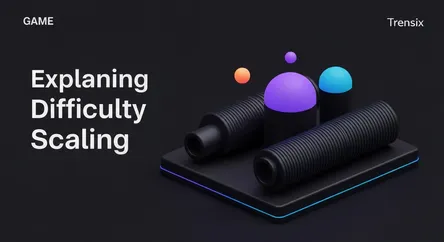Game
Explaining Difficulty Scaling

Discover how difficulty scaling dynamically adjusts game challenges based on player skill, creating a more personalized and engaging experience for everyone.
What is it?
Difficulty scaling, also known as dynamic difficulty adjustment (DDA), is a gameplay mechanic where a game automatically adjusts its challenge level in response to a player's performance. If a player is excelling, the game might increase enemy health or intelligence. Conversely, if a player is struggling, the game might offer more resources or reduce opponent toughness. The goal is to maintain a challenge tailored to the individual's skill, preventing the experience from becoming too frustrating or too easy. This system works behind the scenes to create a smoother difficulty curve for a more personalized playthrough.
Why is it trending?
This mechanic is trending as developers strive to make games accessible to a broader audience without sacrificing depth for skilled players. By adapting to different skill levels, difficulty scaling helps retain players who might otherwise quit due to frustration or boredom. It is a powerful tool for personalizing gameplay in an era where player retention is key. Advancements in AI have also made it easier to implement more subtle and effective scaling systems that feel natural rather than arbitrary, boosting its popularity in many modern single-player and cooperative games.
How does it affect people?
Difficulty scaling directly impacts player experience by aiming to create a highly engaging "flow state" where the challenge perfectly matches ability. This can lead to a more satisfying and immersive game. However, its implementation is critical. When done poorly, it can feel punitive, as players may feel their progress is artificially counteracted, diminishing their sense of mastery. For others, it makes games more inclusive and less frustrating. Ultimately, its effect depends on both the design and the player's preference for either a fixed or an adaptive challenge.